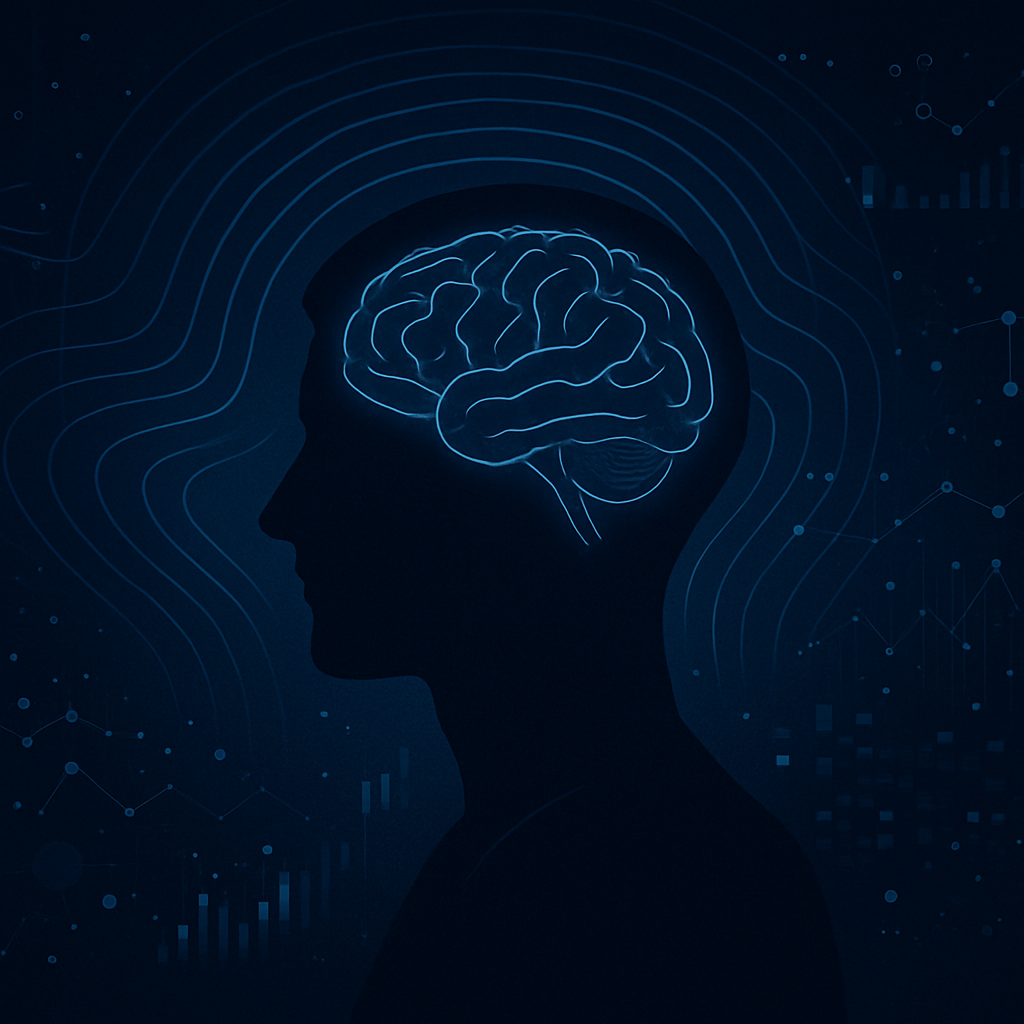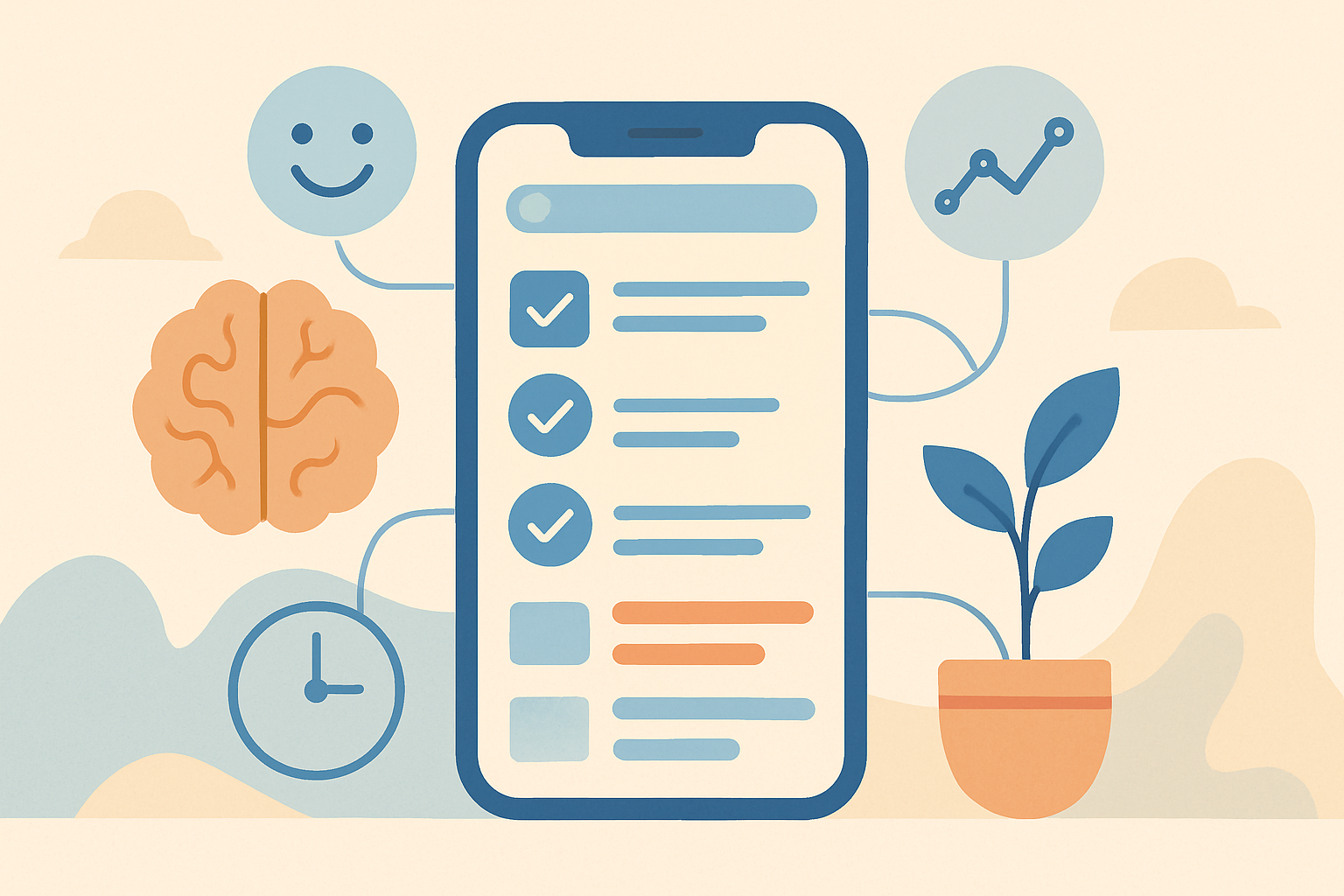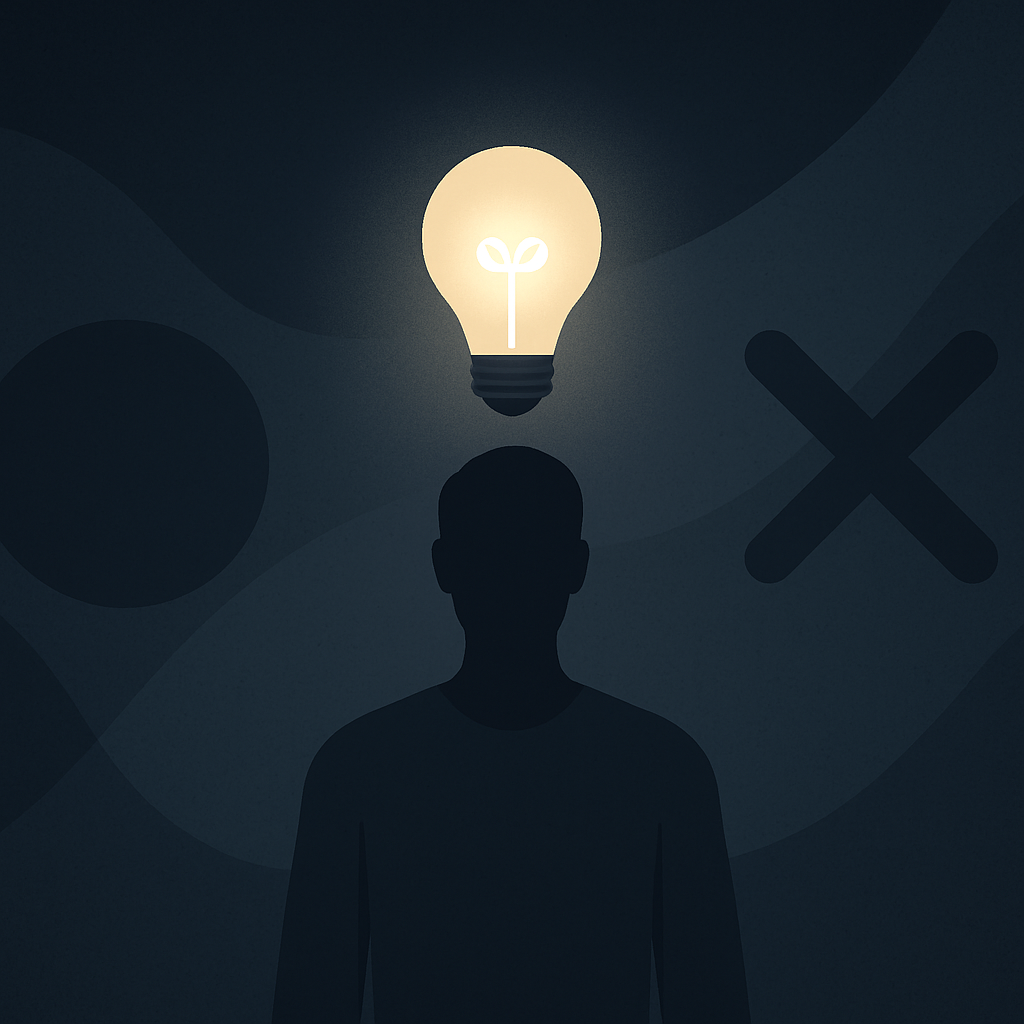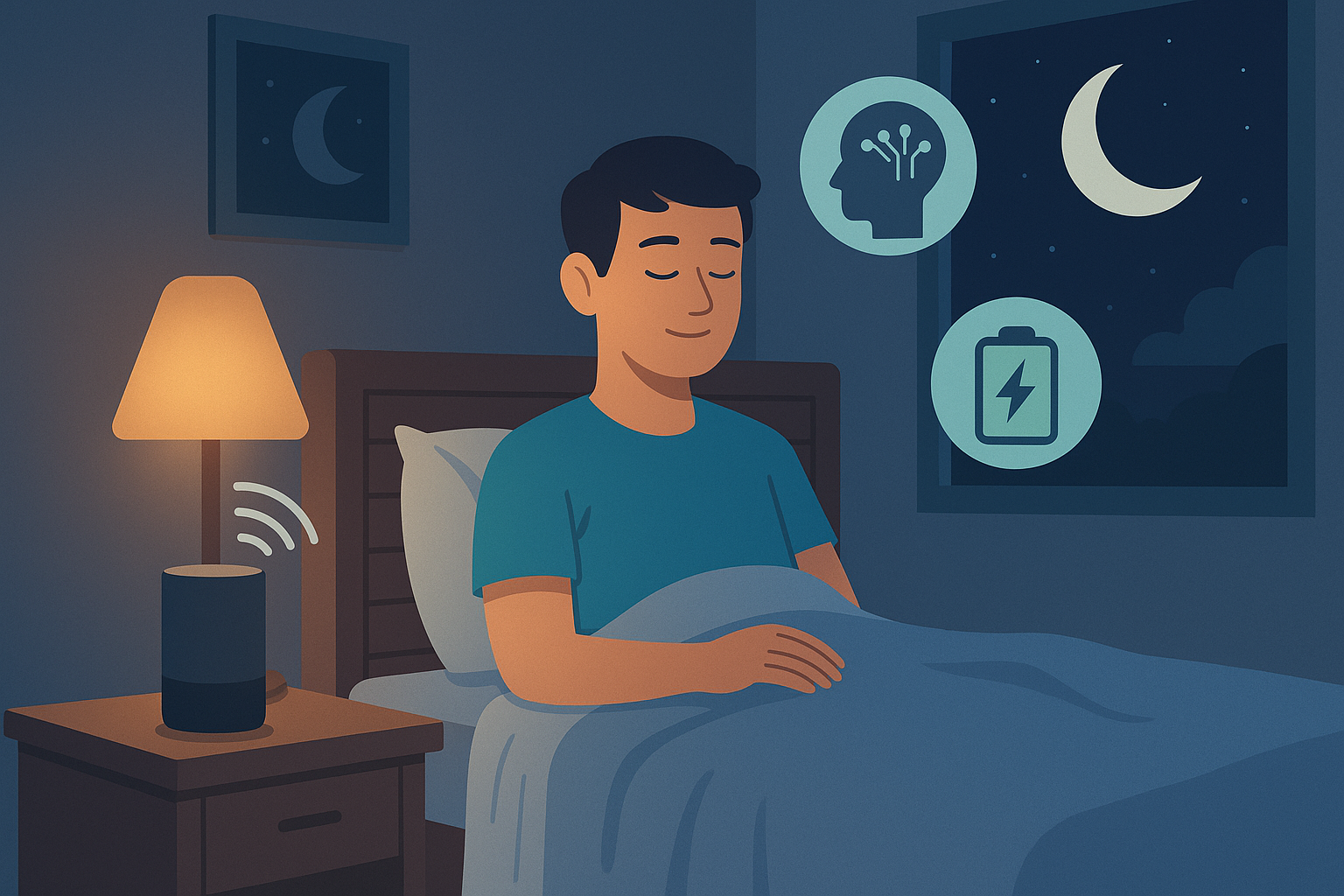Focus used to be a skill. Now, it’s a survival strategy.
In a world where attention is the new currency, training mental focus is no longer a choice — it’s a necessity.
But here’s the paradox: the same technology that distracts us can also help us regain control of our minds. Artificial intelligence, once seen as the enemy of concentration, is now becoming its greatest ally.
Training mental focus in the age of AI isn’t about discipline. It’s about design.

The Cognitive Crisis
Our brains were never built for the digital world.
Every scroll, ping, and pop-up fragments attention into micro-pieces. Research from Stanford shows that multitasking reduces productivity by up to 40% and weakens long-term focus capacity.
Yet, the modern environment constantly demands it.
The result: overstimulation, burnout, and a chronic inability to stay present.
The solution is not rejection but adaptation — using intelligent systems to train attention like a muscle.
AI can now monitor, measure, and guide your focus with precision that no productivity app ever could.
How AI Can Help You Rebuild Focus
AI systems are redefining the science of attention. They analyze behavior, detect distraction, and create personalized feedback loops that strengthen concentration over time.
Instead of guessing when you lose focus, your system knows — and reacts instantly.
Example:
AI-powered tools like FocusCalm or Neurable use neurofeedback headbands to track brainwave activity. When your attention drops, the system gently prompts you to refocus.
Similarly, apps like Reclaim AI and Motion analyze digital behavior, blocking distractions or rescheduling tasks when cognitive fatigue sets in.
This turns focus into something measurable — and therefore trainable.
| Aspect | Traditional Focus Training | AI-Assisted Focus |
|---|---|---|
| Feedback | Self-reported | Real-time data |
| Awareness | After distraction | During distraction |
| Adaptability | Fixed methods | Personalized coaching |
| Longevity | Habit-based | Continuous optimization |
AI doesn’t replace discipline — it refines it.
Building the Habit of Deep Focus
Training focus is like physical exercise. You don’t build endurance by forcing it once — you build it by returning to it repeatedly.
AI helps by turning that repetition into rhythm.
Through predictive learning, it identifies your optimal attention windows — the hours when your brain is naturally sharpest — and schedules demanding tasks within them.
Example:
Reclaim AI studies your calendar and notices you complete deep work most efficiently between 9:00 and 11:30 AM. It automatically protects that time block from meetings, optimizing both output and cognitive recovery.
This automation removes the friction of self-management. You’re not fighting distraction — you’re flowing within focus.
The Mental Gym of the Future
Think of AI not as a tool, but as a cognitive trainer.
It measures your focus levels, detects mental fatigue, and designs micro-breaks that maximize recovery.
A few systems already do this:
- Brain.fm uses AI-generated soundscapes proven to synchronize neural oscillations for concentration.
- Flowstate AI detects typing speed and pauses, identifying your “flow periods.”
- Notion AI tracks your journal entries, identifying recurring mental distractions and suggesting reflection prompts to reframe them.
Each of these tools acts as a mirror for the mind — revealing where focus is lost and how to reclaim it.
Over time, this builds cognitive endurance — not by forcing silence, but by structuring it.
Example: A Day of AI-Guided Focus
Imagine starting your morning with a focus calibration routine:
Your wearable measures sleep quality, while your AI assistant (connected to Motion) creates an adaptive schedule. It reduces external demands during your sharpest hours.
By midday, Brain.fm activates ambient focus audio based on your brain’s current rhythm.
During breaks, Notion AI prompts quick reflection questions — helping you translate awareness into action.
By evening, your dashboard shows exactly when your concentration dropped and what triggered it — fatigue, stress, or digital overload.
You’re not managing focus anymore. You’re mastering it through insight.
The Link Between Attention and Emotion
Focus isn’t just mental — it’s emotional.
Distraction often comes from anxiety, boredom, or fatigue.
AI helps bridge that gap by integrating mood tracking and cognitive data into one system.
For instance, Reflectly or Mindsera analyze your journal tone alongside activity data. When negative emotions correlate with poor focus, the system suggests actionable resets: breathing exercises, environment changes, or a shift to lighter work.
This is emotional intelligence — enhanced by artificial intelligence.
AI doesn’t just strengthen focus. It builds self-awareness.
Table: The Three Layers of AI Focus Training
| Layer | Function | AI Example | Benefit |
|---|---|---|---|
| Cognitive | Tracks attention & flow | Neurable, FocusCalm | Real-time awareness |
| Behavioral | Manages environment & time | Motion, Reclaim AI | Less friction |
| Emotional | Detects mindset patterns | Mindsera, Reflectly | Balanced focus |
The synergy of these layers turns your digital life into a personalized attention ecosystem — one that adapts to your mind instead of overwhelming it.
The Future of Focused Work
The next generation of AI will integrate directly with neural sensors, reading micro-patterns in cognitive fatigue and responding dynamically.
It won’t just tell you what to do, but when to stop.
Your future workday might look like this:
Your computer dims brightness as brain activity drops. Your music changes automatically to maintain rhythm. Your phone enters silent mode before you even reach distraction.
In this world, AI doesn’t demand focus — it designs for it.
Conclusion
Training mental focus in the age of AI isn’t about escaping technology — it’s about using it intelligently.
By aligning your systems with your biology, you transform focus from a struggle into a state.
The best way to strengthen attention is not to fight distraction, but to understand it.
AI gives you the clarity to do both.
You don’t need more discipline — you need better design.
And intelligence, human or artificial, begins with awareness.
Further Reading & Related Insights
Internal link:
- Track Habits & Mood Automatically with AI — Discover how self-awareness and behavioral data build sustainable focus.
External links:
Blog
This section provides an overview of the blog, showcasing a variety of articles, insights, and resources to inform and inspire readers.
-

AI Habit Tracking and the New Rhythm of Modern Self-Improvement
AI Habit Tracking. Progress used to depend on discipline. Now, it depends on data.…
-

AI Decision Making and the New Discipline of Intentional Living
AI Decision Making. Every “yes” has a cost. Every time you agree to something…
-

The Perfect AI Night Routine to Sleep Better and Think Smarter
AI Night Routine. Your morning doesn’t begin when you wake up — it begins…
